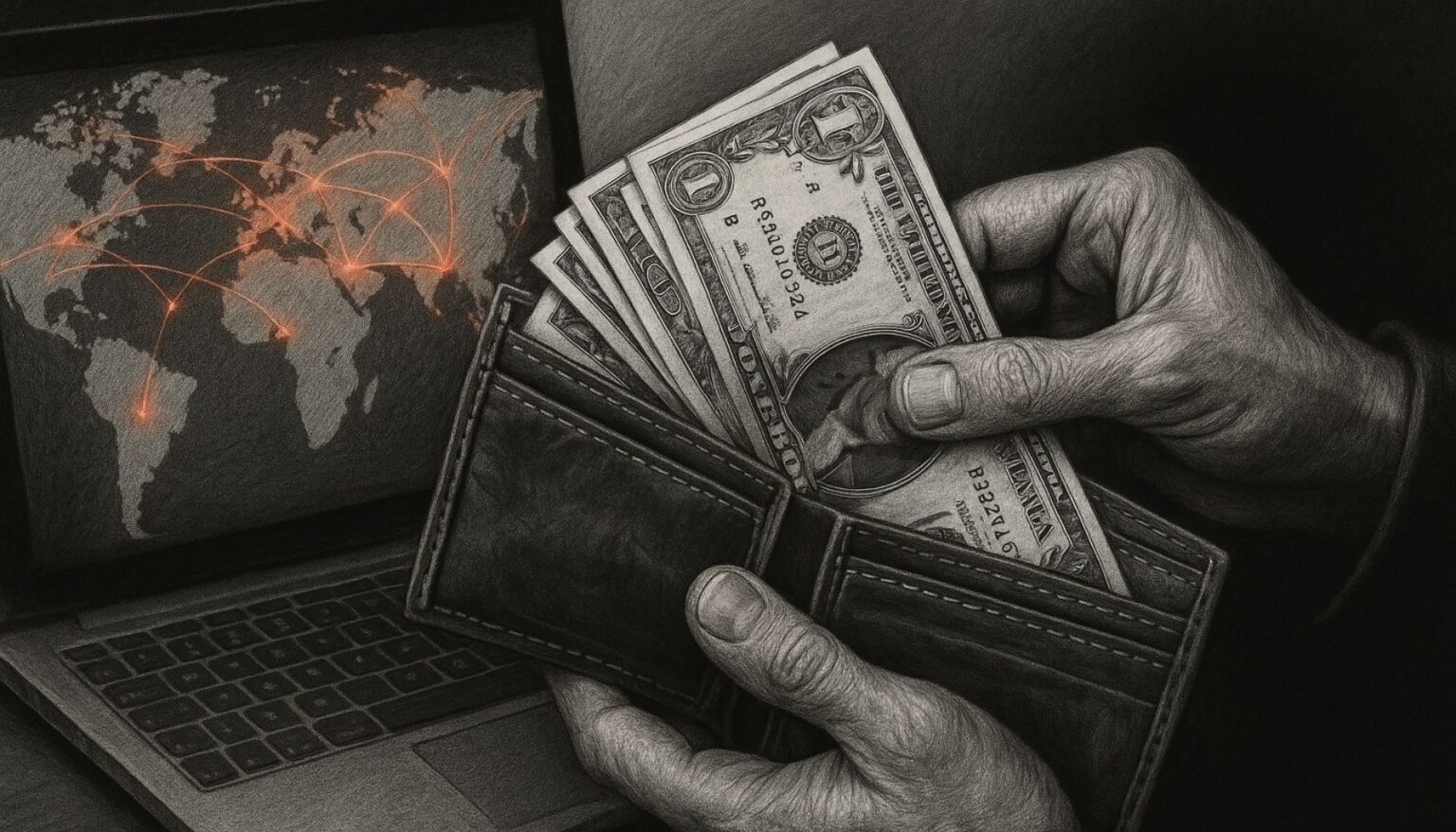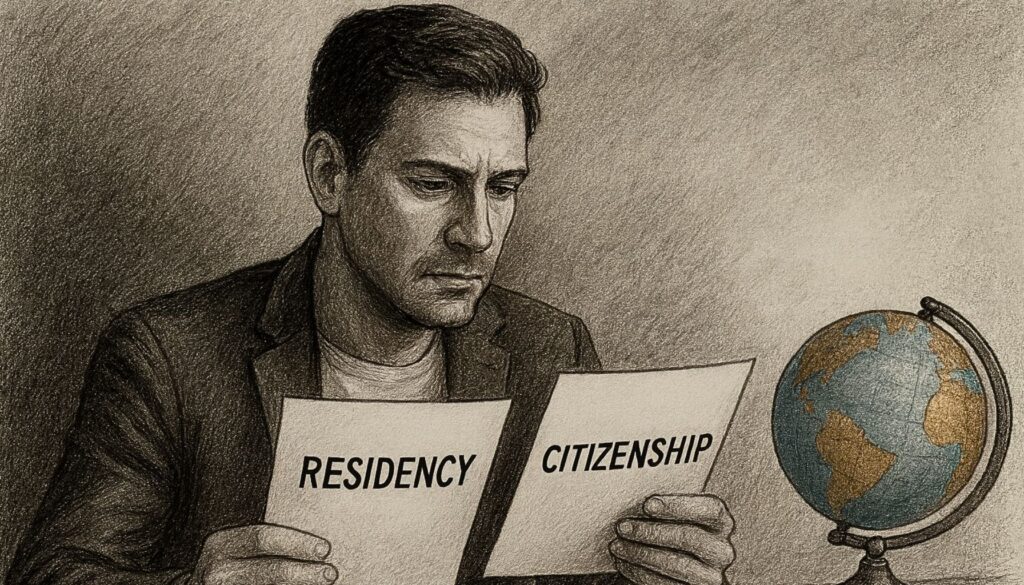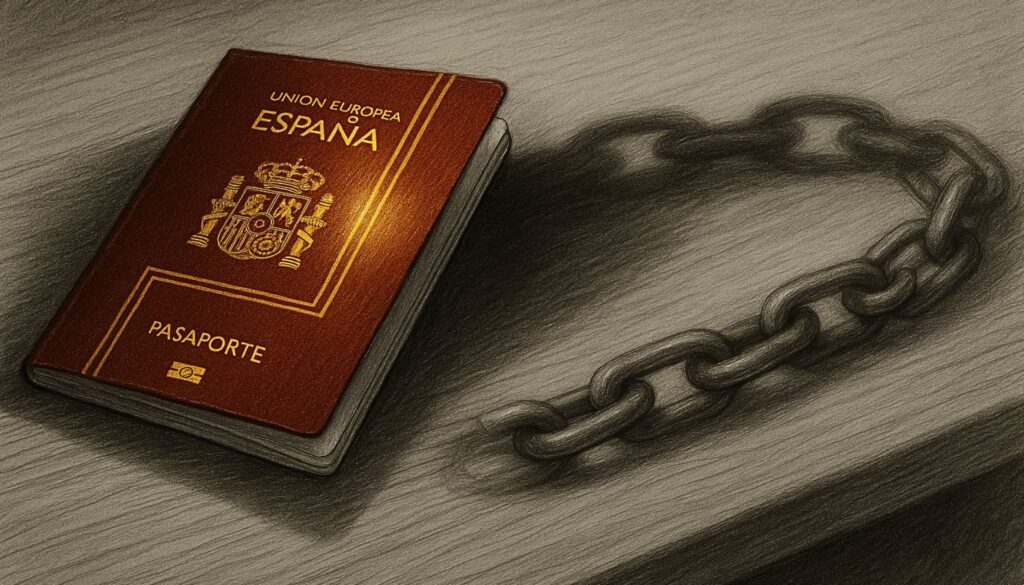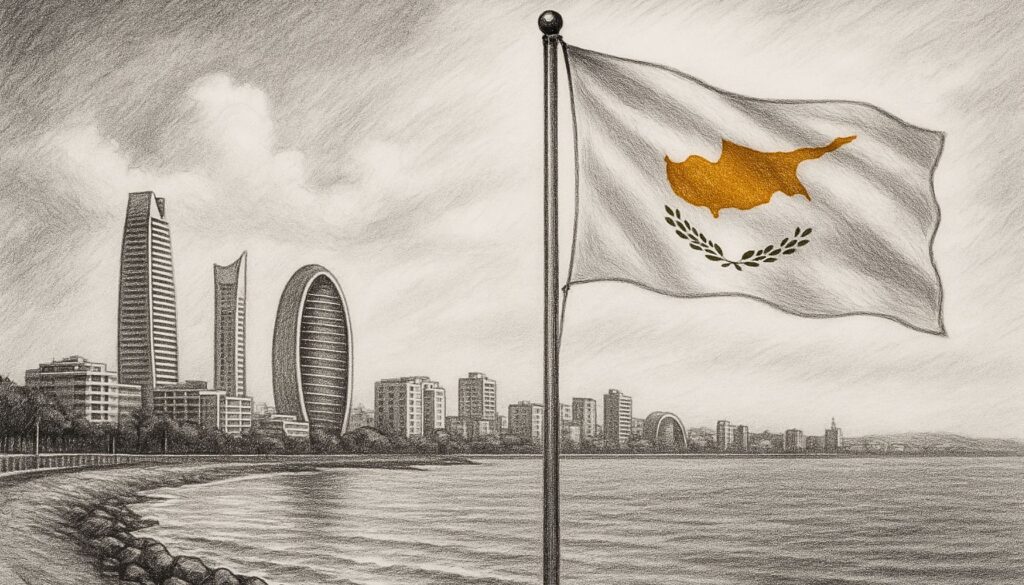You may not have realized it yet, but your money and your information will soon no longer be yours alone.
And the worst part: no one is going to ask whether you agree or not. All of this is thanks to a silent and relentless system through which your government watches you.
Nomad, this system was built to control you. And it’s turning the world into a single global tax agency.
While you trusted your financial freedom, living in another country, using decentralized wallets, investing from abroad, someone else was backing everything up… Sounds exaggerated?
Welcome to a world where few people know what is the OCDE, what is the CARF, or what is the CRS, but while they find out in this blog, over 120 countries already share your banking information by default. And since 2025, with CARF in full swing, not even cryptocurrencies are safe.
We’re talking about a global, legal, and silent system that connects governments, banks, crypto platforms, and fintechs to automatically exchange your financial data, as if they were all part of the same State.
This is not a hypothetical future. It’s already happening.
And you need to understand how this new global tax surveillance system works, and most importantly, how to use the rules to your advantage before the board closes completely.
This blog is not a guide to evasion, but you will find the information you need so we can plan your Plan B together:
- How the global tax surveillance system works across borders.
- The countries that do not implement the CRS or CARF and still resist… but for how much longer?
- And most importantly: Evade the CRS in 2025 and protect your money without breaking the law… but stepping out of the radar.
Because if the State already made its move, it’s your turn to play smart.

Indice del artículo
What is the OCDE and why does it lead the world’s largest tax network?
Few people understand the real power the OCDE has over their daily lives.
The Organisation for Economic Co-operation and Development is not a government, a central bank, or a legal authority over countries. But in practice, it is the brain behind the global tax system through which your government watches you.
From theory to practice: CRS, CARF, and the architecture of tax control
The OCDE is the intellectual author of the Common Reporting Standard (CRS) and the CARF, the new Crypto-Asset Reporting Framework. It doesn’t enforce them by force. It presents them as “global standards.”
And once enough countries sign them, they become de facto law.
This is how the OCDE, without armies or legislation, has built a system that:
- Turns banks into informants
- Forces fintechs to track your activity
- Transforms your wallet into a transparent account… even without your consent
To Evade the CRS in 2025 and protect your financial privacy, you can’t ignore the OCDE. Because even if you don’t see it, it already sees you.
What is the CRS and how does automatic exchange of banking information work?
The CRS is not a guideline. It’s a radar. And you’re at the center of the map.
The OCDE sold it as a “technical solution,” but in practice, it functions as a legalized surveillance system between countries.
Each bank must identify whether a client is a non-resident and, if so, report their information automatically to that country’s tax authority.
No investigation, no suspicion.
Learn more here.
What data does your bank share under the CRS?
Many digital nomads believe that having an account abroad grants them privacy.
But if that country applies the CRS (and almost all of them do), your account is being reported every year.
The data typically reported includes:
- Tax Identification Number (TIN)
- Balance as of December 31 of each fiscal year
- Interest, dividends, and investment returns
- Proceeds from the sale of financial assets, in some cases
And the worst part? You no longer need to move large amounts to be flagged. For example:
- If your account is inactive, having more than $1,000 is enough to be reported
- If it’s active, it is always reported, regardless of the amount
And since 2024, the scope of reportable items has expanded: digital products, NFTs, custodial accounts, and complex financial structures that previously escaped detection under the original framework.
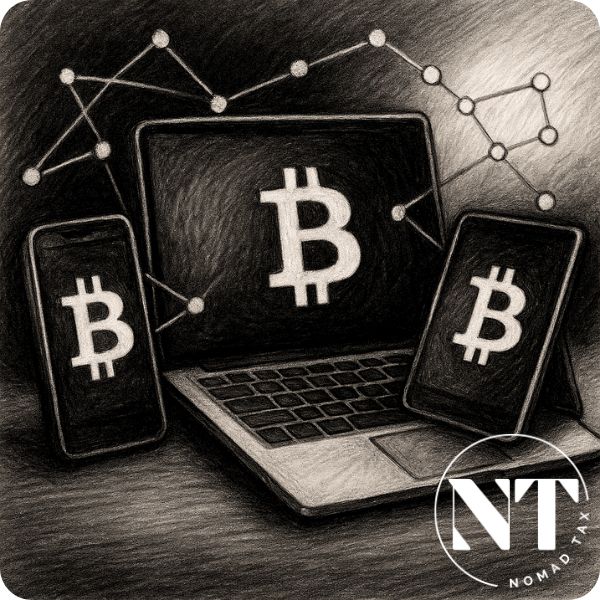
What is the CARF and why are cryptocurrencies no longer safe in 2025?
The CARF (Crypto-Asset Reporting Framework) is the new financial radar designed specifically for digital assets. And in 2025, it is already active. This is how your government watches you in real time.
Exchanges, DeFi platforms, and custodians: the radar now targets crypto
Binance, Kraken, Bitfinex, Coinbase…
All of them are in the process of complying with the CARF in participating jurisdictions.
But the biggest blow is to the DeFi ecosystem:
In 2025, decentralized platforms that have control or indirect access to user funds must also report, if their headquarters, hosting, or team are located in a country that implements the CARF.
Even if the smart contract is immutable, the frontend, interface, domain, or team may still be subject to tax scrutiny.
The result?
Millions of users who operated “in the shadows” are now under the same spotlight as traditional banks. Your government watches you and hands over your data and privacy to the system.
Countries that already implement the CARF in 2025: Germany, Brazil, Canada
In January 2025, the pilot implementation began with the participation of:
- Germany (integration with BaFin and banking records)
- Brazil (data sharing with Receita Federal and local exchanges)
- Canada (direct supervision by the CRA and fiscal security agencies)
These three countries are already testing automatic reporting from national and international exchanges to their respective tax authorities, including data on foreign users.
And they’re not alone:
The United Kingdom, Japan, and South Korea have confirmed full implementation before 2027.
What exactly is reported under the CARF?
This is what gets reported: personal data, TIN (Tax Identification Number), wallet address (if associated), total value of each crypto transaction, and fiat conversion for tax purposes, among others.
If you engage in staking, lending, yield farming, wallet-to-wallet sales, or P2P trading, all of that counts as reportable activity.
And if the platform cannot identify the TIN or country of residence, the report is generated with the available information, labeling you as an “individual with incomplete data,” which increases your fiscal risk level.
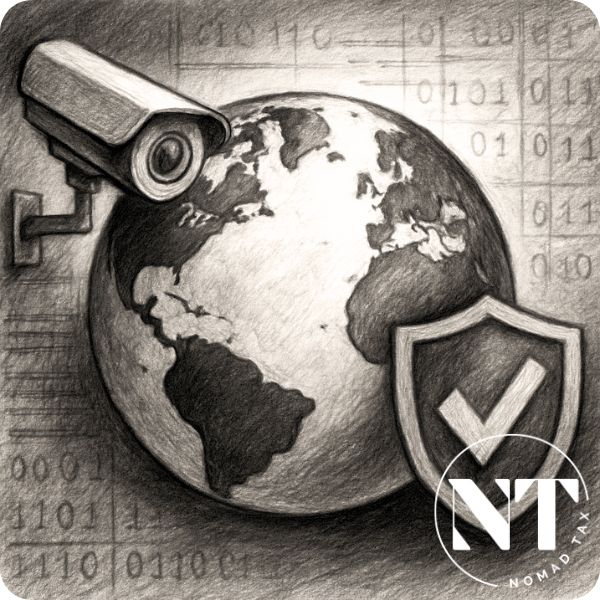
Which are the countries that do not implement the CRS or CARF in 2025?
In 2025, most countries are already part of the CRS, and dozens more are moving toward CARF.
And those that still resist? They are few, scattered, and increasingly under pressure.
Here we show you who is still outside the global tax surveillance system so that you can Evade the CRS in 2025.
Updated list of jurisdictions outside the system
Although the OCDE boasts of its “global consensus,” there are still jurisdictions that do not report your banking or crypto information to any foreign country.
In 2025, these are the main financial privacy hotspots that remain outside the CRS and CARF:
- United States: does not participate in the CRS or CARF. Its focus remains FATCA (for its own citizens).
- Guatemala, Cambodia, North Macedonia, Armenia (until this year), the Philippines, Paraguay, and the Dominican Republic
- Some African and Asian countries with no international banking structure or direct pressure
Each one has different advantages, but also latent risks.
Because although they do not report… the window is closing.
Guatemala, Dominica, Cambodia, and others under international pressure
The OCDE and the EU are stepping up efforts to make these havens disappear.
Here are some key cases:
- Guatemala: still does not report. But its proximity to the US and FATF pressure are already pushing internal reforms.
- Cambodia: labeled “non-cooperative” by the EU. Financial restrictions are already in place for entities linked to the country.
- Dominican Republic: the Caribbean is a top priority target for Brussels. Tax pressure is increasing.
- Armenia: officially announced it will join the CRS in 2025. The window of opportunity is closing now.
- North Macedonia: its EU membership ambitions place it directly on the waiting list to apply the CRS.
Conclusion: being outside the system is not a stable policy. It is a temporary pause before the forced integration of the countries that do not implement the CRS or CARF.
What about the United States? A separate case, but not untouchable
The United States does not participate in the CRS or CARF.
And yes, it remains a jurisdiction that many take advantage of due to its lack of international reciprocity.
But that does not make it an eternal haven.
Since 2024, the Corporate Transparency Act requires all US LLCs, trusts, and legal structures to report their real beneficiaries to FinCEN.
And in 2025, internal pressure has already started to erode the myth of American banking invisibility.
Is it still useful? Yes, if it is part of a well-planned strategy.
Is it still opaque? Not as much as before.
Using the US without understanding the context is playing with fire.
How much longer will they hold out? Blacklists, sanctions, and system threats
When the OCDE wants a country to align, it cuts access to:
- SWIFT transfers
- Transfers with EU and US banks
- Investment agreements, treaties, and external financing
- Certifications to operate with international entities
Countries like Trinidad and Tobago, Vanuatu, and other small island states have been gradually isolated for refusing to implement the CRS.
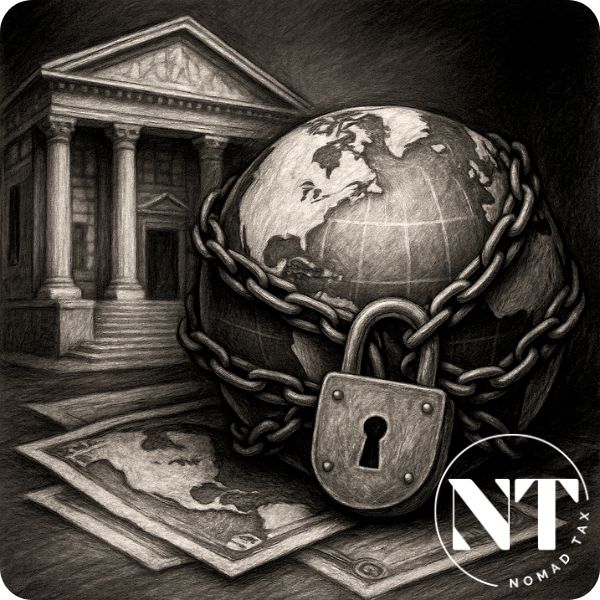
How to Evade the CRS in 2025 Without Breaking the Law
The key: tax residency in countries with territorial taxation
If your country only taxes what you generate locally, then your foreign income stays off the tax radar, even if it is reported under the CRS.
Paraguay and El Salvador: How much is a residency worth that does not tax your global income?
In countries with territorial taxation, the State only charges you for what you earn within its territory.
What you generate abroad — international clients, offshore investments, crypto income — simply does not enter the fiscal radar. And if your residency is there, what the banks do with your information does not matter.
Paraguay: Simple residency, low exposure
- Does not apply CRS
- Territorial system: does not tax worldwide income
- Easy access to permanent residency
- No obligation to live there full-time
- Low cost of living and flexible structures
In 2025, Paraguay remains one of the most accessible havens for nomads and investors who want to establish a legal base without getting trapped in the global tax system.
El Salvador: Structured confidentiality and international recognition
- Territorial taxation system
- Does not tax income earned outside its territory
- Has international agreements, but tax residency still protects your global income
In 2025, El Salvador still does not participate in the CRS. This country remains one of the few where tax residency neutralizes the impact of automatic reporting. Because if there is no local income, there is no tax base.
Are you being reported from Switzerland? El Salvador receives the data, but does nothing with it.
Because it is not entitled to tax it.
Trusts, foundations, and active companies: legal structures that take you off the radar
The CRS targets individuals. But it cannot chase what has no name or surname.
That is why a solid legal structure can completely change your exposure.
Trusts
- Used to legally separate ownership of assets
- The ultimate beneficiary may remain off the radar if not required to be reported
- In places like South Dakota or Nevis, trustees do not report under the CRS
Private Foundations
- Such as those in Panama or Liechtenstein
- Have no shareholders or reportable owners
- Properly structured, they can act as legal custodians without personal exposure
Active Companies
- If they have real substance (office, employees, activity), they are not considered passive
- And if they are not passive, they do not report the ultimate beneficiary under the CRS
Important: This is not about using just any offshore company. It is about creating a living entity, with real function, in a strategic jurisdiction.
Income segmentation by jurisdiction: diversification is not an option, it is defense
One of the most common mistakes among digital nomads and freelancers is putting everything in the same place.
For smart segmentation and to Evade the CRS in 2025, you can:
- Invoice through an international company (for example, in the Emirates)
- Have a territorial tax residency (like Paraguay or Panama)
- Pay yourself a minimal salary in your country of residence
- Keep the profits within the company (outside the CRS)
The new global banking surveillance: from Swiss secrecy to financial algorithms
Welcome to the era where every bank, every app, every digital payment gateway works hand in hand with your tax agency. And if you thought you could dodge the radar by using “modern” fintechs…
We have news for you.
Banks, fintechs, and apps now work for the tax office
Do you want to open an account in an international bank?
Get ready to fill out a CRS form, declare your tax residency and your TIN.
And if you don’t, they will shut the door in your face.
Prefer using Wise, Revolut, Payoneer or similar?
Same story. All of them are regulated and required to follow KYC and CRS protocols, even for small personal accounts.
The new role of fintechs: over 70% are already bound by the CRS (2025)
A joint report by the IMF and the OCDE published in March 2025 revealed:
“Over 70% of fintechs operating in OCDE member countries are now legally obligated to comply with the CRS and report user data.”
And it doesn’t matter if your account doesn’t have an IBAN, or if your wallet is virtual.
If the fintech is headquartered or hosted in a participating country, it is inside the system.
Even apps that once promised “zero KYC” are falling one by one, forced to implement:
- Biometric authentication
- Collection of tax data
- Geolocation of transactions
- Automatic jurisdiction-based reporting
Behaviors that trigger alerts and automatic reporting
Surveillance no longer waits for a report.
Now it reacts to patterns.
The problem? Those patterns are defined by an algorithm.
Here are some behaviors that can trigger internal alerts in banks and fintechs:
- Moving money frequently between accounts in different countries
- Splitting large transfers into smaller ones (to avoid controls)
- Declaring one nationality but providing a tax number from another country
- Operating in a jurisdiction classified as “fiscally risky” by the OCDE
- Using cryptocurrencies and then converting to fiat in accounts with no legal backing
When these signals appear, the bank:
- Flags your account as “fiscal risk”
- Generates a suspicious activity report
- Sends the report to its financial intelligence unit
- If there is a CRS or DAC agreement, your country receives it within weeks

What now, Nomad?
If the system can track you before you make a mistake, it means you no longer need to do something wrong to be seen as suspicious.
Today, it’s enough to operate outside the norm. Or worse: outside the system.
That’s why the question is no longer whether your government watches you. It’s whether you have a clear strategy for when they come after you.
Conclusion
The net is already in place. It’s not about if they’ll see you, but when and how.
The global tax system is not based on clear laws, but on data shared without your consent.
This is how your government watches you, and if you do nothing, the only thing “private” left in your name… will be the bill.
The CRS, the CARF, and the entire surveillance machine were not designed to protect you.
They were designed to make sure you can’t escape.
Anticipation is not paranoia. It’s strategy.
You still have time. But not to react.
To structure your life in one of the countries that do not implement the CRS or CARF in 2025.
It’s about staying ahead and protecting what’s yours.
Because in a system where transparency is mandatory, true tax intelligence is planning.
🧭 Schedule your personalized consultation with Nomad Tax
👉 https://thenomadtax.com/consultoria-fiscalidad-internacional/
